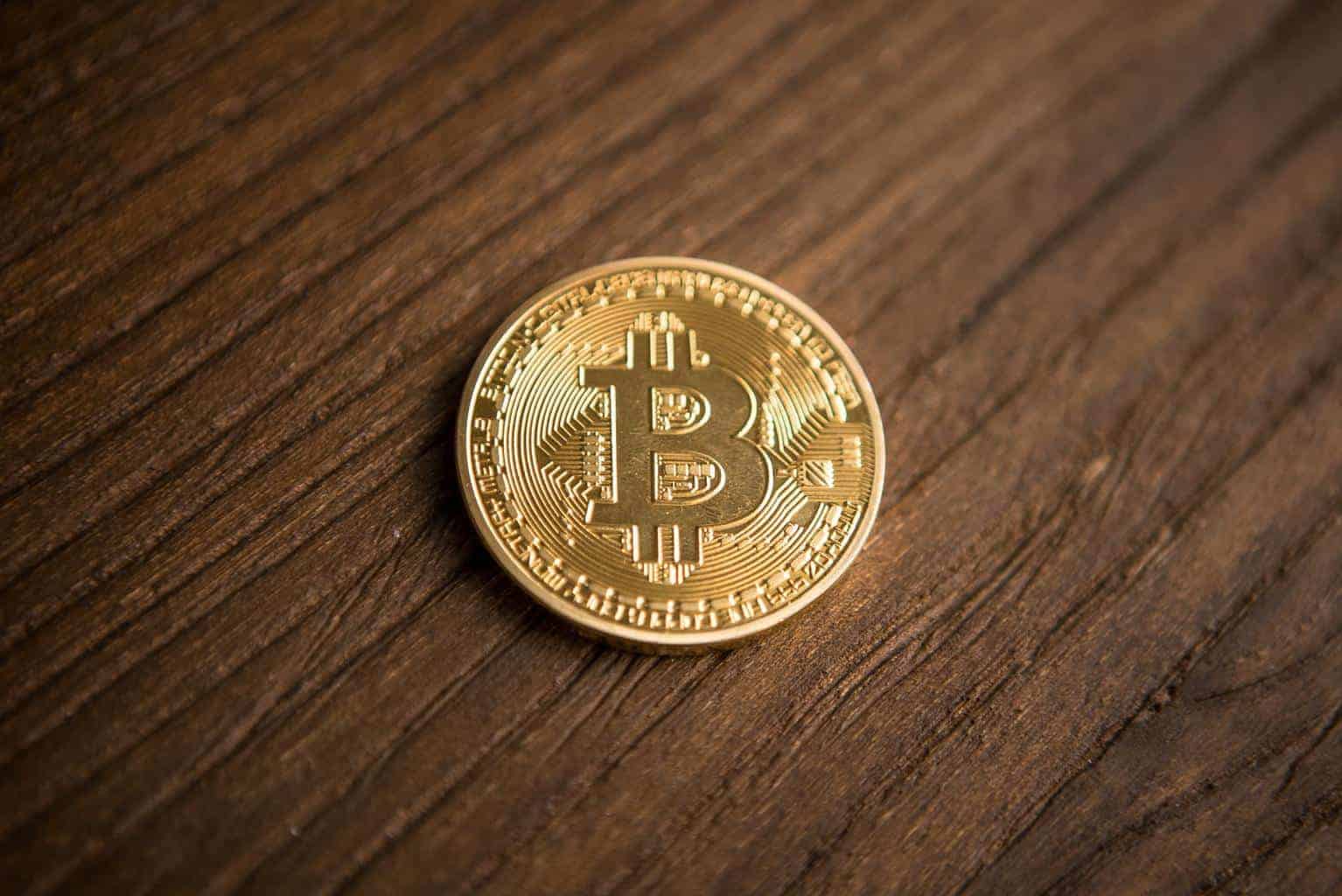What Is Bitcoin?
Bitcoin is the granddaddy (at the ripe old age of almost 12 years) of digital currency, which has come to be known as cryptocurrency. Bitcoin was introduced to the world in 2009 by an anonymous individual or group of people who had figured out how to create a secure form of currency that would be devoid of any government control.
Bitcoin (with capital B) is the company that issues the currency, which is known then as bitcoin or bitcoins. Consumers can purchase it through several exchanges then use the currency to purchase products or services from online suppliers. It also has become a traded commodity like gold or fiat currencies (those issued by governments).
What You Need to Know About Bitcoin
You probably don’t understand how the U.S. Mint works and how currency prices are set, but you’ve been using money all your life and feel pretty confident it’s traded fairly.
But you might be a little hesitant about trying out a new currency with no understanding of how it works and what its history entails.
First, there is no physical bitcoin. It is merely digital data created by the company and stored in blocks of data, known as blockchain. These blockchains are shared with hundreds or thousands of computers, known as “nodes”. These thousands of nodes storing the same data create the security for bitcoin as anyone trying to illegally alter the data would be required to change it on thousands of nodes at the same time.
How Does Bitcoin Work?
Each transaction in bitcoin generates two sets of “keys.” One is a public key stored in the blockchain and visible to anyone, not just the controllers of the thousands of nodes. The private key belongs to the holder to ensure no one else can access the bitcoin until the private key holder issues permission.
Consumers can exchange fiat currency for bitcoin through a variety of exchange sites. It can be spent at brick and mortar stores if they accept it or online through various sites. One aspect of bitcoin spending is that the spender can remain anonymous, so its usage has become common among nefarious businesses.
More bitcoin is added to the Ethernet occasionally through complicated mathematical puzzles that “miners,” who also are the node owners, solve to become the recipients of newly released bitcoin. As of July 2020, some 3 million bitcoins had not been mined.
Where Did Bitcoin Begin?
The first clue of Bitcoin appeared in August 2008 when the domain name bitcoin.org was registered. The identity of the domain owner remains hidden as “WHoisGuard Protected.”
In October 2008, a group or individual going by the name announced via The Cryptography Mailing List at metzdowd.com, “I’ve been working gon a new electronic cash system that’s fully peer-to-peer, with no trusted third party.” At the same time, Satoshi published the whitepaper, “Bitcoin: A Peer-to-Peer Electronic Cash System,” that outlined how it would operate, still true to this day.
The first Bitcoin block, known as Block 0 and the “genesis block,” was mined on January 2, 2009, with the cryptic message: “The Times 03/Jan/2009 Chancellor on the brink of second bailout for banks.” The text seemed to stand as proof of the date of mining plus as a political commentary on governments’ attempts to recover from the global economic collapse.
Five days later, the Bitcoin software was announced on The Cryptography Mailing List, and one day after that, Block 1 was mined, launching the serious run of Bitcoin mining.
Who Is Bitcoin’s Inventor?
The great mystery surrounding the identity of Satoshi Nakamoto has never been solved, despite great interest and speculation over the past decade-plus. A group of people were likely involved in creating Bitcoin as a digital currency. Some have tried to claim credit, such as software developer Craig Wright, but have not proven their standing. Others have speculated about the creator’s identity, with security expert John McAfee saying he’s 99% sure who wrote the whitepaper. Still, he declines to say who out of respect for the individual’s right to privacy.
Before Satoshi
As surprising and mysterious was Satoshi’s unveiling of Bitcoin in 2008, it can’t be said the inventor pulled together some magical potion to create it. Even the Bitcoin whitepaper references such precursors as Adam Back’s Hashcash, which was released in 1997. Wei Dai’s b-money that followed. Nick Szabo’s bit gold, and Hal Finney’s Reusable Proof of Works, also were two possible inspirations for Bitcoin. All of these individuals and many others have been part of the speculation about the mystery behind Satoshi Nakamoto’s true identity, as well.
Why Has Satoshi Remained Anonymous?
You might think the creator of a potentially world-altering product would crave the fame that comes with such a situation. But there some good reasons for Satoshi to remain anonymous.
First, suppose Bitcoin grows in popularity and threatens the current system of government-controlled fiat currencies. In that case, those same governments could take legal action or worse against Satoshi to retain that control. After all, some states are not above eliminating perceived threats to their authority. The anonymous nature of spending this cryptocurrency could also make the company owner target for government investigators if they are looking to shut down bitcoin for illegal activities, such as drug or weapons dealing.
Second, it’s likely Satoshi, and maybe a few others were among the early miners of Bitcoin and cashing in the rewards for releasing blocks of bitcoin. In the company’s first year, 32,489 blocks were mined at a then-reward rate of 50 bitcoins per block. That means the miners were holding 1,624,500 bitcoins, which by late 2019 would equate to a value of $13.9 billion. Therefore, Satoshi likely is a wealthy individual or group of individuals who could become the target for criminals seeking the private keys that could unlock that wealth.
Either way, remaining anonymous offers the best protection for Satoshi’s safety and health.
How to Receive Bitcoins as Payment
Any individual or business that sells a product or service can become a receiver of bitcoins as a payment form. Physical stores can collect payments as easy as setting up a QR code that links to your wallet, so customers merely scan from their app to your wallet and authorize payment. No fees are required though some recipients can set up a fee schedule for accepting it. Bitcoin also does not require a delay in receiving payments as many credit card processing companies transfer the money a day or two after you accept the charge. It also works by tapping two phones together using NFC radio technology. Online sellers merely need to add Bitcoin as a payment option, just as you would credit cards, PayPal, or other familiar payment systems.
Who Can Work for Bitcoins?
Self-employed individuals can easily seek payment from clients through Bitcoin. You can set up an online payment platform and link a wallet to direct payments.
Workers also can find many online services or communities that link job seekers with companies willing to pay in bitcoin:
- Jobs4Bitcoins: Part of the Reddit network, this job board includes more than 32,000 members connecting those offering their services with that hiring.
- Cryptogrind: A free-standing website, Cryptogrind links freelance workers with companies and handles the payments, so workers don’t have to expose their wallets.
- Coinality: Another website that connects freelance workers and employers. Coinality also works with other forms of cryptocurrencies, such as Dogecoin and Litecoin.
- BitGigs: This website also links freelancers and companies and includes space for creative types such as artists and musicians.
- Bitwage: This website offers workers an opportunity to have a portion of a work paycheck converted into bitcoin and transferred to your wallet.
The Explosion of Bitcoin Investment
Though creating an investment opportunity may not have been Bitcoin’s founders’ intent, those seeking to make a buck have found rewards and losses by speculating on bitcoins’ rise and fall.
To be clear, you cannot invest in Bitcoin, the company, as it is not publicly traded. Investors invest in the coins as a commodity, speculating about their rise or fall as measured against fiat currencies.
Just as with any investment, the hope is to buy low and sell high. It’s in that fluctuation in the exchange rate for fiat currency that investors hope to rack up significant gains.
Investors generally buy bitcoins through one of the various exchanges then hold the coins until a shift in exchange rates. It accelerated rapidly in May 2011 and November 13, fueling speculation in Bitcoin as a commodity.
The IRS determined in March 2014 that all virtual currencies would be taxed as property, rather than currency. Gains or losses, therefore, are treated as capital gains or losses. Bitcoins held as inventory can be taxed as ordinary gains or losses for income tax purposes.
Bitcoin Investing Carries High Risk
Just as any investment carries risk, investing in bitcoins comes with inherent risks. Let’s say Bitcoin decides to flood the market with new mining opportunities and thousands or millions of new bitcoins hit the market, the value will plunge. Of course, the company is unlikely to make such a maneuver as its owners also are bitcoin holders. But if a government should move to shut down or block its usage, that could create a similar disruption in the market.
Because of wild fluctuations in the bitcoin market, federal agencies like the Securities and Exchange Commission, the Financial Industry Regulatory Authority, and the Consumer Financial Protection Bureau have issued investor alerts.
Even Barry Silbert, CEO of Digital Currency Group, which builds and invests in blockchain companies, told a MarketWatch Investing Insights event in 2014, “It is pretty much the highest-risk, highest-return investment that you can possibly make.”
Regulatory Risks
Bitcoin investors should be aware of two potential regulatory risks faced by all types of cryptocurrencies.
First, as we mentioned earlier, nations that feel the growing popularity of cryptocurrencies threatens their currencies could eye restrictions on the use of cryptocurrencies within their borders and in trans-border transactions. Also, because many countries act to manipulate the value of their currency against other nations, they will be likely to act if they feel cryptocurrencies threaten their ability to control the value of their own currencies.
Second, as cryptocurrencies are used for illegal activities or laundering money made through illegal activities, governments will be sure to seek to regulate the flow of such funds. Regulators can monitor such spending now through traditional banks that are required to report large transactions. In 2015, the New York State Department of Financial Securities finalized regulations that would require companies that buy, sell, transfer, or store virtual currency to record customers’ identities and report transactions of more than $10,000.
Security Risk
While bitcoins themselves are incredibly secure because of the nature of the peer-to-peer oversight of public keys, the greatest security risk for bitcoin holders is the private key’s theft that can unlock the transfer of them to another wallet.
Two particular threats occur in this scenario:
- The bitcoin holder maintains private keys on his/her computer, and hackers access the computer and steal the private keys. Its owners can avoid this risk only by storing private keys on a computer that is not connected to the internet or using a “paper wallet” where keys are printed and not stored on any computer.
- Bitcoins often are purchased and stored in many popular exchanges. If hackers succeed when targeting those companies, they can access thousands of accounts and digital wallets and transfer it to different accounts. In 2014, the bitcoin exchange Mt. Gox in Japan was forced to close down after hackers gained access and stole millions of dollars worth of bitcoin.
Bitcoin transfers are permanent and irreversible, so when such a hack occurs, there is no third party or payment processor to recover the funds.
No Insurance for Bitcoin
Unlike money held in a traditional bank, which is insured and protected from loss for up to $100,0000 by the Federal Deposit Insurance Corporation, funds held in bitcoin exchanges or accounts are not covered by insurance.
In 2019, SPOX, a prime dealer and trading platform announced it would provide FDIC insurance to bitcoin investors, but only for the portion of their account purchased with cash.
Some other types of investments are insured through the Securities Investor Protection Corporation, but not this cryptocurency.
Bitcoin Fraud Is Real
Fraudsters and scammers will take advantage wherever they see an opportunity, and this cryptocurrency is no exception.
One example came in 2013 when the SEC brought legal action against the operator of a bitcoin-related Ponzi scheme. A Ponzi scheme is where an operator recruits investors with a promise of a significant return on investment, only to provide that payout to early investors from money coming from later investors. Eventually, the operator decides to bail out when they have enough money and leaves the later investors with no payout and no investment.
Its price manipulation also has been documented as another form of fraud.
What Is The Market Risk?
The most significant risk is the inherent market risk. High-volume trading, sometimes computer-generated, can lead to big swings in the bitcoin exchange rate. It also is extremely sensitive to any form of news because the concept is so young and unfamiliar to many people. The Consumer Federation Protection Bureau notes that bitcoin’s price fell by 61 percent in a single day in 2013 and a whopping 80 percent in a single day in 2014.
After a cryptocurrency rush in late 2017 and early 2018, speculation swirled around a “Bitcoin bubble” that could burst and send prices tumbling.
The competition also could become a factor as hundreds of more players join the cryptocurrency field, though Bitcoin does have the brand advantage.
And just as Bitcoin introduced breakthrough technology to enter the currency field, a new type of currency could sneak into the field.
Tax Risk for Bitcoin
Because the IRS treats this cryptocurrency as property, there are no means to protect its profits from taxation. You can’t put them in a tax-deferred retirement account. The profits you realize in the United States when you sell bitcoin will be taxed as capital gains, among the higher tax rates you face. And it will be taxed as ordinary income even as you hold them.
Defining Bitcoin Forks
One final potential risk for an investor is what has come to be known as Bitcoin Forks.
This occurs when a group of miners or investors has a disagreement with Bitcoin to the point they break with the company and form a new cryptocurrency with their data. These can be a “hard fork,” in which the new coin shares transaction history with the company up to a certain split point when a new coin is created, or a “soft fork,” in which the change in protocol is still compatible with the system rules. Among hard forks are the formation of Bitcoin Cash in August 2017, Bitcoin Gold in October 2017, and Bitcoin SV in November 2017.






